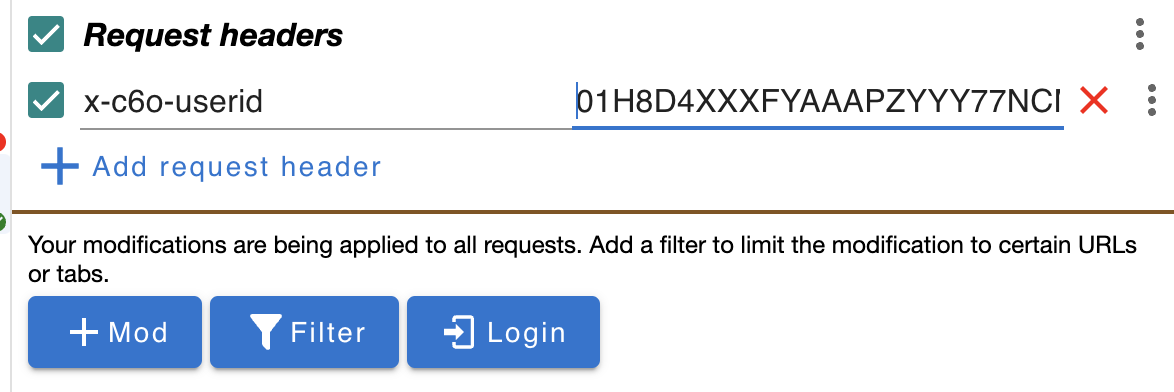Advanced Serve Topics
Serve Condition Types
Conditions are a powerful and simple way to create unique development environments based on a base in-cluster environment. Codezero provides conditions that define how traffic routes across in-cluster and local variants and essentially, allow you to develop without having to deploy.
We currently support the following condition types. Should you have unique needs in order to make your development experience easier, please reach out to us.
User
When unspecified, Serve creates a conditional route based on the current Codezero User. Your UserID is unique and ensures that there will be no conflicts across other sessions.
Other team members may use the same Teamspace to work on the same part of the application concurrently.
Header
If you prefer to use your own header, you can use the Header condition. This allows you to specify any arbitrary header key and value. You would specify this condition as follows:
czctl serve my-project/frontend 8080 --condition-type header --condition "my-key:my-value"
In the case above, in order to route to this new variant, your curl command would be:
curl -H "my-key:my-value" http://<ExternalIP>:8080/
Default
We call the in-cluster variant the Default Variant. This is because it is the variant that is served when no conditions are met or when there are no conditions for routing traffic.
In some cases, you may want all traffic destined for the in-cluster service to route to you. For instance, you may be interested in a web hook callback and are not able to manipulate the headers sent by a third party service.
In this case, you want to make your local variant the new Default Variant.
czctl serve my-project/frontend 8080 --condition-type default
With the above, you no longer have to add anything to the curl request:
curl http://<ExternalIP>:8080/
If team members are serving variants with User or Header conditions, any requests that match those conditions will be routed to those matching variants.
UserID header in browser
In order to access variants via a browser, there are a number of third party tools that will add custom headers to browser requests:
A number of the above providers are browser extensions. For example, configuring ModHeader as follows with your UserID:
